- Home Page
- Company Profile
-
Our Products
- Fiberglass and Insulation Sleeves
- Insulation Sleeves
- Polyester Expandable Braided Sleeves
- Fire Resistant Sleeve
- SRBP Tubes
- Polyurethane Fiberglass Sleeves 1.5 kv
- Acrylic Fiberglass Sleeving
- Varnished Fiberglass Sleeve F Class
- Polyurethane Fiberglass Sleeve
- Fire Sleeves
- PVC Coated Fiberglass Sleeve
- Silicone Coated Fiberglass Sleeve
- Polyurethane Coated Fiberglass Sleeves
- Fiberglass Sleeve ( China Sleeve )
- Fiberglass Sleeving B Class
- Nomex Paper and Electrical Insulation Papers
- Laminated Fleece Paper
- Eurotherm Laminated Nomex Paper NPN
- Pure Aramid Paper
- Electrical Insulating Paper
- Laminated Aramid Paper
- Saturated Fleece Paper
- DuPont Nomex Paper
- Saturated Fleece Paper
- Insulating Kraft Paper
- Insulation Pressboard
- Laminated Nomex
- Electrical Insulation Papers and Laminates
- Pure Aramid (Nomex) Paper
- Laminated Fleece
- Black Kraft Paper
- Amotforse Brown Kraft Paper
- Diamond dotted Paper
- Fiberglass and Insulated Cables
- Glass Epoxy Sheets and Wedges
- Varnishes and Thinners
- Electrical Insulation Tapes
- Electrical Insulation Sheets and Fabrics
- PTFE Wire
- Silicon Cable
- Insulation Film
- Fiberglass and Insulation Sleeves
- Certificates
- Contact Us
Fiberglass Cloth
50.0 INR/Kilograms
Product Details:
- Product Type Insulation tape
- Material Fiberglass
- Width 1/2", 3/4", 1", 1.5" 2", 3", 4" Inch (in)
- Application Transformers, Motors, High temperature insulation
- Color White
- Click to view more
X
Fiberglass Cloth Price and Quantity
- 1 Kilograms
- 50.0 INR/Kilograms
Fiberglass Cloth Specification
- Insulation tape
- Transformers, Motors, High temperature insulation
- White
- Fiberglass
- 1/2", 3/4", 1", 1.5" 2", 3", 4" Inch (in)
Fiberglass Cloth Trade Information
- Mumbai / Bhiwandi
- Cash Against Delivery (CAD), Cash on Delivery (COD), Paypal, Delivery Point (DP), Telegraphic Transfer (T/T), Letter of Credit (L/C), Cash in Advance (CID), Cash Advance (CA), Cheque
- 20000 Kilograms Per Month
- 3 Days
- Yes
- Free samples are available
- Wooden pallets
- Australia, Western Europe, South America, Africa, Eastern Europe, Asia, Central America, North America, Middle East
- CE & RoHS
Product Description
Fiberglass cloth, also known as fiberglass fabric or glass cloth, is a material made from fine fibers of glass. It is commonly used in various industries for its excellent combination of strength, durability, and resistance to heat and chemicals.
Fiberglass Cloth Features:
1. High Tensile Strength: Fibreglass fabric has an extraordinary tensile strength that enables it to withstand mechanical stress and offer structural reinforcement to a variety of materials.
2. Heat Resistance: The ability of fibreglass cloth to withstand high heat is one of its important characteristics. It is useful for applications involving heat insulation and protection because it can withstand high temperatures without suffering considerable degradation.
3. Chemical resistance: Fibreglass cloth has a high level of chemical resistance, making it helpful in situations where exposure to strong chemicals is a problem.
4. Electrical Insulation: Fibreglass cloth can offer a certain level of electrical insulation, although not being as electrically insulating as some other materials, making it acceptable for some applications in the electrical and electronics industries.
5. Lightweight: Fibreglass fabric is comparatively light given its strength, making it a good option for situations where weight reduction is crucial.
6. Flexibility: Fibreglass cloth may be moulded or shaped to meet different forms, making it suited for complicated or uneven surfaces.
7. Versatility: It is available in a range of weights and weaves, providing options for applications and reinforcing levels.
Benefits of Fiberglass Cloth:
1. Plastics, resins, and composites are frequently reinforced with fibreglass cloth. It transforms into a robust composite material with enhanced mechanical properties after being injected with a resin matrix and curing.
2. Fibreglass fabric increases the sturdiness and lifespan of objects due to its resistance to heat, chemicals, and mechanical stress.
3. This material can be used to insulate heat in products like oven mitts, fireproof apparel, and safety covers.
4. Fibreglass fabric is utilised in the repair and reinforcement of structures including pipes, boats, and aeroplanes. To regain strength and integrity, epoxy resins are used.
5. Automotive and aerospace sectors both employ fibreglass fabric to strengthen structures, lighten components, and improve their mechanical qualities.
6. Fibreglass cloth is used in roofing, insulation systems, and composite panels in the building industry.
7. Hobbyists, artists, and DIY enthusiasts utilise fibreglass fabric to make unique projects and sculptures.
Fiberglass Cloth Specifications:
|
Type |
Weave |
Density (yarns/cm) |
Weight (g/m,Square) |
Tensile strength (N/25mm) |
Warp |
Weft |
Diameter (m) |
||
|
Warp |
Weft |
|
Warp |
Weft |
Tex |
|
|||
|
EW30 |
Plain |
20+2 |
18+2 |
23+2 |
160 |
70 |
8 |
4 |
4.5 |
|
EW60 |
Plain |
20+2 |
20v2 |
48+4 |
260 |
260 |
12.5 |
12.5 |
5.5 |
|
EW80 |
Plain |
12+1 |
12+1 |
80+8 |
300 |
300 |
33 |
33 |
9 |
|
EW100 |
Plain |
16+1 |
15+1 |
110+10 |
400 |
400 |
33 |
33 |
9 |
|
EW130 |
Plain |
10+1 |
10+1 |
130+10 |
600 |
600 |
66 |
66 |
9 |
|
EW160 |
Plain |
12+1 |
12+1 |
160+12 |
700 |
650 |
66 |
66 |
9 |
|
EW200 |
Plain |
8+0.5 |
7+0.5 |
198+14 |
700 |
650 |
132 |
132 |
9 |
|
EW200 |
Plain |
16+1 |
13+1 |
200+20 |
900 |
700 |
66 |
66 |
9 |
FAQ:
1. What is the composition of fibreglass cloth?
Ans: In order to create fibreglass cloth, thin glass fibres are knitted together. The process of weaving results in a material that resembles cloth but yet has glasss mechanical strength and heat-resistance.
2. Where is Fibreglass Cloth Used?
Ans: To reinforce materials like plastics and composites, fibreglass fabric is frequently used in the marine, automotive, and aerospace sectors. In addition, it is employed in the construction and repair of buildings as well as for heat insulation and protective garments.
3. How can materials get reinforced using fibreglass cloth?
Ans: Fibreglass cloth produces a composite material that is stronger and more resilient than the resin alone when it is impregnated with a resin matrix, such as epoxy, and allowed to cure. The mechanical qualities of numerous components are improved by the use of this reinforced material.
4. Do fibreglass fabrics withstand heat?
Ans: Yes, fibreglass cloth is heat resistant and capable of withstanding high temperatures without suffering much damage. It is suitable for applications that need heat insulation and protection due to its feature.
5. Can DIY projects use fibreglass cloth?
Ans: Absolutely, fibreglass cloth is used for a variety of creative projects by amateurs, artists, and DIY enthusiasts. It can be moulded, shaped, and blended with resins to make unique sculptures, practical prototypes, and other things.
Superior Insulation for Critical Equipment
Fiberglass cloth provides robust insulation for transformers and motor windings, effectively handling high temperature environments. Its non-conductive and heat-resistant properties make it a reliable choice for maintaining equipment safety and performance in various industries.
Versatile Sizing Options for Custom Applications
Available in several thicknesses and widths, the fiberglass cloth can be tailored to specific needs. Its flexibility supports installations in compact spaces or large-scale systems, offering adaptability for professional use and enhancing overall operational efficiency.
FAQs of Fiberglass Cloth:
Q: How is fiberglass cloth typically used in transformers and motors?
A: Fiberglass cloth is wrapped or layered around windings and components in transformers and motors to provide electrical insulation and thermal protection, helping prevent short circuits and overheating.Q: What are the thickness and width options available for your fiberglass cloth?
A: We offer fiberglass cloth in thicknesses of 0.15, 0.20, 0.25, and 0.30 mm, with widths from 1/2 inch up to 4 inches, allowing users to choose the optimal size for their applications requirements.Q: When should fiberglass cloth be chosen for high temperature insulation?
A: Fiberglass cloth is recommended whenever insulation needs to withstand elevated temperatures, such as in electrical systems or machinery that operates in demanding conditions, ensuring ongoing protection and system reliability.Q: Where are your fiberglass cloth products typically applied?
A: Our fiberglass cloth is widely applied in electrical transformers, motor windings, and any environment where effective thermal insulation and electrical isolation are crucial to operational safety.Q: What is the process for installing fiberglass cloth for insulation purposes?
A: Installation involves measuring the required length and width, cutting the cloth accordingly, and securely layering or wrapping it around components to achieve maximum insulation and protection, adhering to industry standards.Q: What benefits does fiberglass cloth offer compared to other insulation materials?
A: This material delivers superior electrical and thermal insulation, resistance to wear and tear, and compatibility with a range of industrial applications. Its flexibility and durability make it a preferred choice over many alternatives.Tell us about your requirement

Price:
Quantity
Select Unit
- 50
- 100
- 200
- 250
- 500
- 1000+
Additional detail
Mobile number
Email

 Send Email
Send Email 
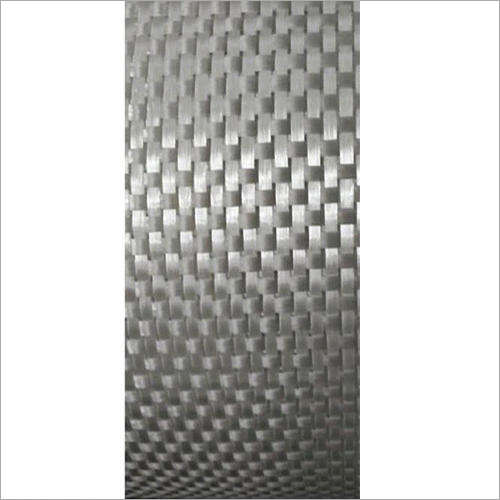
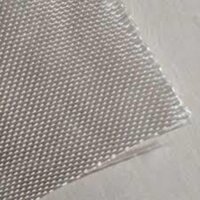
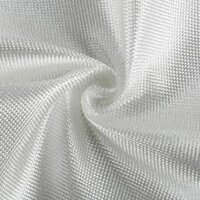





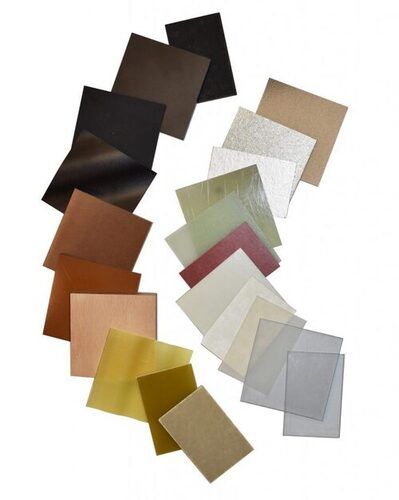
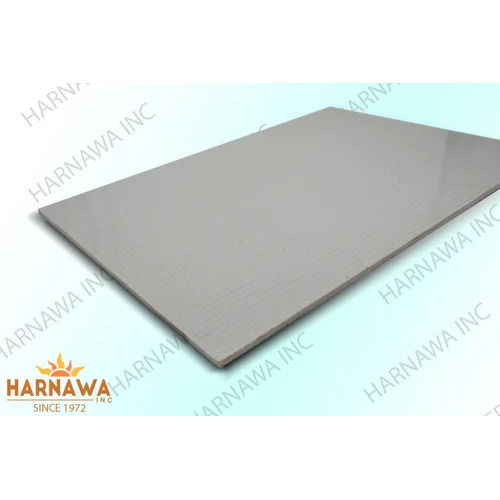


 Send Inquiry
Send Inquiry Send SMS
Send SMS
 English
English Spanish
Spanish French
French German
German Italian
Italian Chinese (Simplified)
Chinese (Simplified) Japanese
Japanese Korean
Korean Arabic
Arabic Portuguese
Portuguese